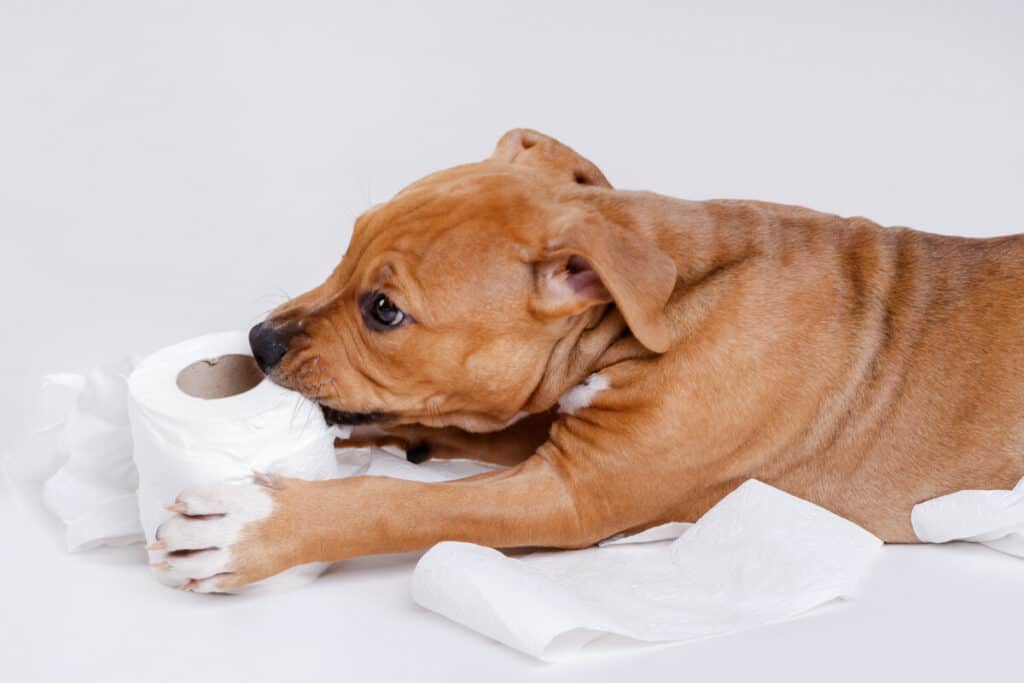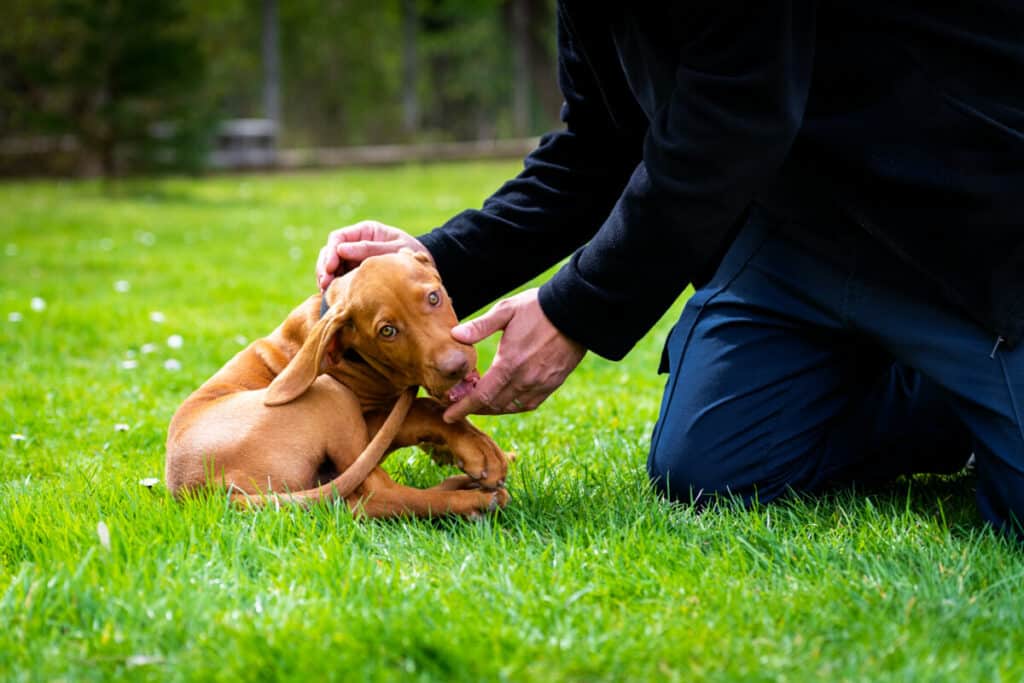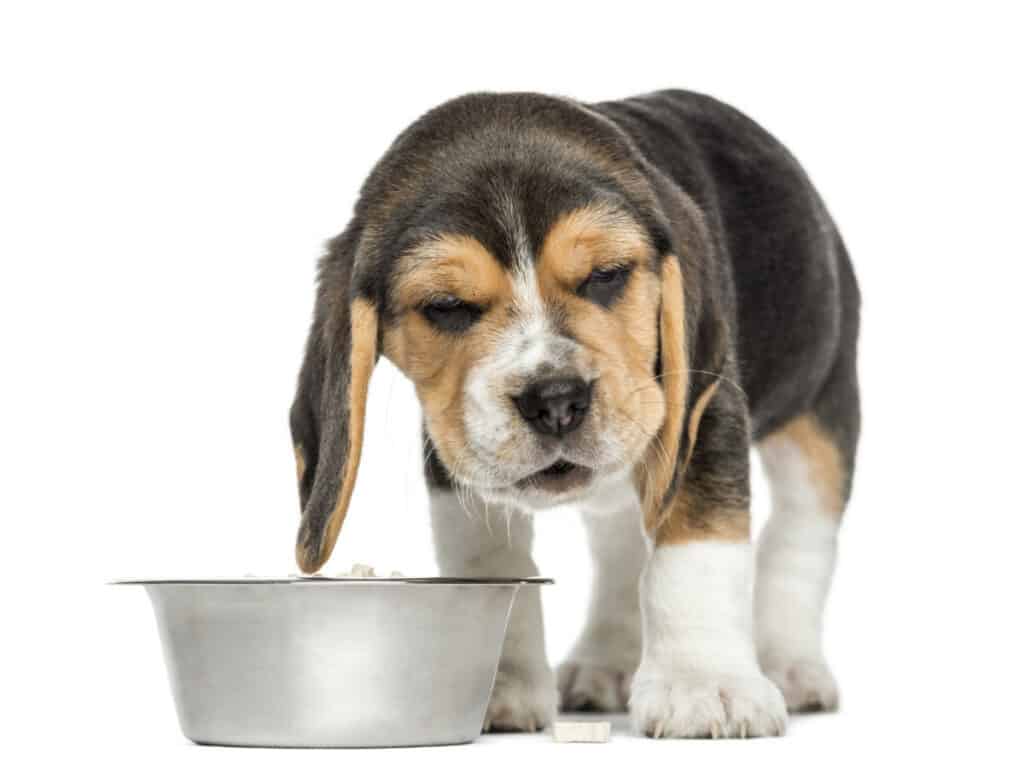
Aside from house training, teething is one of the first big changes your puppy goes through. Teething can be a stressful event for both puppy and owner, especially when you add puppy diarrhea to the mix. Is diarrhea caused by teething, or is it caused by something else altogether?
Diarrhea can be a side effect of puppy teething but should be short-lived like other symptoms. Teething can cause all sorts of stomach upset in puppies, either due to stress, changes in appetite, or chewing habits. If it persists for more than 48 hours, consult a veterinarian.
What exactly can new pet parents expect during their puppy's teething time? How can you tell if diarrhea is related to teething or some other health issue? How can you best help your puppy through it? Let's take a moment to answer these questions.
Is it Normal for Puppies to have Diarrhea?
First, let us look at what kind of stool is healthy for puppies. As your puppy grows and develops, soft stool can be expected and is even healthy. However, diarrhea can indicate that there is a deeper problem with your puppy that needs to be treated by a veterinarian.
Pay attention to your pet's habits. If a puppy that normally has more solid stool suddenly starts having softer stool without any other changes to its diet, health, or habits, it can be a sign of illness. If the stool becomes closer to diarrhea rather than just softer stool, contact your pet healthcare specialist to see if it is something that may warrant a visit.
Can Teething Cause Loose Stool in Puppies?

Sometimes loose stool is a natural sign of change. When a puppy starts teething, they tend to chew on everything they can get their mouth and paws on. Some dogs may also develop a fever, upset stomach, or lose their appetite. These things may cause unusual or loose stool. While this is not necessarily something to worry about, the side effects of teething should not be noticed long-term. Contact your puppy's healthcare specialist if they persist for more than 24 hours.
Puppies may also ingest something that they should not have by accident when teething due to their increased chewing habits. This can cause unusual stool as well. Their immune systems are also not finished developing at this stage, and teething provides an opportunity for germs to make their way into their bodies, which can also cause diarrhea. Keep an eye on what your puppy is chewing on while they are teething.
What are the Symptoms of a Puppy Teething?
Your puppy will generally start displaying at least one common symptom of teething around the time their adult teeth start coming in. As they begin to teethe, you may notice your puppy has red or inflamed gums, excessive drooling or bad breath, and a decrease in appetite. They may also be in a poorer mood than usual due to their discomfort.
They may also develop intense chewing behaviors where they have previously been uninterested or less enthusiastic. Chewing is the most obvious sign of teething in a puppy. To discourage your pet from chewing on things they should not— such as shoes, furniture, or even their cage— provide them with plenty of toys that they are allowed to gnaw on. This helps them deal with the discomfort while discouraging biting and other undesirable behavior.
Teething puppies may also bleed from their gums occasionally, leaving blood on chew toys. This is okay, as long as there are only a few specks or drops of blood. Puppies with excessive gum bleeding should be taken to see a pet healthcare specialist.
You may also find loose baby teeth on the floor as they are displaced by the new teeth. However, it is also common for puppies to swallow old teeth as they fall out. This is completely normal.

What are the Most Common Causes of Diarrhea in Puppies?
Though loose stool may be a common occurrence during teething, it may also be a sign of sickness. If you have ruled out teething as a cause of diarrhea, here is a list of some of the most common causes of diarrhea in puppies.
- Change in Diet: Puppies have sensitive stomachs and can develop intolerance to foods they have been eating for a while, or react poorly to new or unfamiliar foods. Even small changes in diet can sometimes cause diarrhea for a puppy. Keep careful track of what your puppy eats and how their body reacts to it.
- Bacterial Infection: As their immune system develops, puppies are susceptible to more illnesses than fully-grown dogs. Some of the more serious infections they can catch which may cause diarrhea include Salmonella, E. coli, and Clostridium. They may be accompanied by other symptoms such as bloody diarrhea, loss of appetite, fever, and vomiting. Puppies exhibiting these symptoms should be taken to the vet immediately.
- Viral Infection: Viruses can be the more frightening of puppy illnesses, as they are not treatable except by vaccination ahead of time. The parvovirus and distemper viruses are potentially fatal illnesses that can affect unvaccinated or partially vaccinated puppies and can cause diarrhea. Coronavirus can also cause viral diarrhea in puppies, and requires immediate medical attention from a vet, like other viral illnesses.
- Eating something they should not have: Puppies eat all sorts of things they are not supposed to, especially when teething. Whether it is garbage, poisonous plants, cleaning supplies, or foreign objects, something ingested by your puppy that should not have been can cause diarrhea, and they will require immediate medical help.
- Parasites: All pets can be susceptible to parasites, either through birth or environment. Parasites, including roundworms and hookworms to name a couple, can cause diarrhea.
- Stress: Sometimes, stress can cause diarrhea in puppies. If your dog is going through a particularly stressful time, it may experience brief diarrhea. Adjust your routine however you can to increase their comfort and feeling of security at home to help de-stress your puppy. If diarrhea persists, seek medical advice from your puppy's vet.

Cindy is a prolific writer and online researcher who can't imagine life without dogs. There is scarcely a dog topic she has not researched or written about. Her love for dogs and helping dog parents is evident by the thousands of dogtemperament.com visitors who read her articles monthly. Most of all, each topic Cindy writes on helps forge a stronger bond and understanding between her and her happy Catahoula Leopard Dog Jossie.